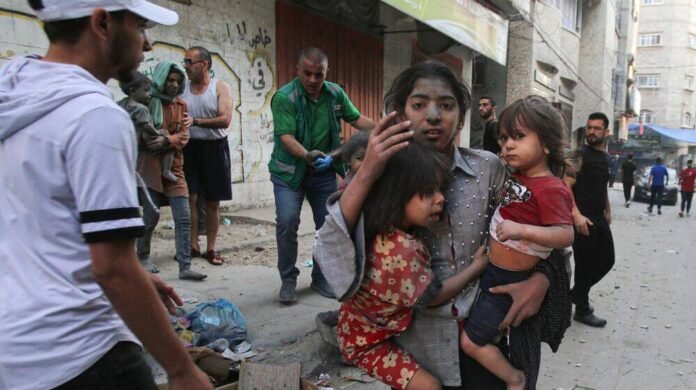The United Nations Population Fund (UNFPA) has sounded the alarm over the dire humanitarian conditions faced by women and girls in Gaza, emphasizing that their lives have been “torn apart” by the ongoing conflict. Despite the temporary ceasefire, the situation remains critical, with thousands of women struggling to access basic healthcare, hygiene supplies, and essential services.
UNFPA’s Relief Efforts in Gaza
Since the ceasefire, UNFPA has been actively working to deliver crucial aid, including reproductive health supplies, dignity kits, menstrual hygiene kits, and essential items for newborn babies and new mothers. These efforts aim to support the most vulnerable women and girls who have been disproportionately affected by the crisis.
However, UNFPA warns that much more needs to be done. The organization has highlighted the urgent need for increased funding and improved humanitarian access to ensure that aid reaches those who need it most. The destruction of healthcare infrastructure, coupled with restricted movement due to security concerns, has made it increasingly difficult for relief organizations to operate effectively in Gaza.
Fear That the Ceasefire May Not Last
Nestor Owomuhangi, a representative with UNFPA Palestine, expressed concerns about the fragility of the ceasefire, stating, “Most importantly, we need to ensure that this ceasefire holds and that we’re able to deliver on what we are promising to women and girls.”
Many women and girls in Gaza remain fearful that the current cessation of hostilities may not last, leaving them in a constant state of uncertainty and distress. Owomuhangi stressed the importance of the international community stepping in to ensure lasting peace. “They are calling on us, the UN system, and the international community to make sure that peace prevails,” he added.
The Struggles of Women in Conflict Zones
The impact of war on women and girls is profound. Many have lost their homes, family members, and access to healthcare and education. Pregnant women face extreme difficulties in accessing prenatal and postnatal care, while new mothers struggle to find proper nutrition and medical support for their babies. Additionally, the disruption of supply chains has resulted in a severe shortage of menstrual hygiene products, further exacerbating the struggles of women and adolescent girls.
The Need for International Support
UNFPA has called for increased global efforts to ensure that humanitarian aid continues to reach Gaza’s women and girls. This includes not only medical and hygiene supplies but also psychological support services for those who have endured severe trauma.
The crisis has placed immense pressure on humanitarian organizations operating in the region. UNFPA continues to advocate for better access to aid, urging world leaders to step up efforts to support Gaza’s vulnerable populations. Without sustained international intervention, the situation may deteriorate further, putting countless lives at risk.
A Call for Lasting Peace
While humanitarian aid is crucial, long-term solutions are needed to address the root causes of the suffering. UNFPA and other international organizations emphasize that a lasting peace agreement is essential to ensure the safety and well-being of Gaza’s women and girls.
Until then, UNFPA vows to continue its efforts to provide life-saving aid and support to those in need. The organization remains committed to advocating for the rights of women and girls, ensuring that they receive the assistance they deserve amid one of the most challenging humanitarian crises in recent history.







